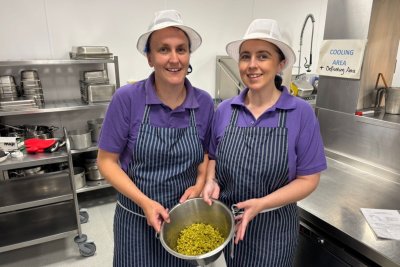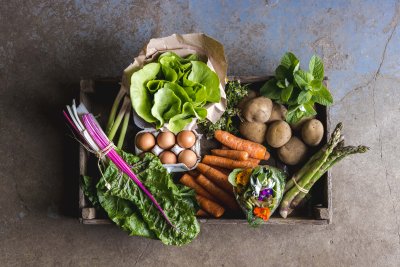Sustain: Sustain The alliance for better food and farming advocates food and agriculture policies and practices that enhance the health and welfare of people and animals, improve the working and living environment, enrich society and culture and promote equity.

Comparing demand-side efforts to reduce diet-related GHGs
A report from the international agricultural research partnership CGIAR reviews various measures that tackle food-related greenhouse gas emissions by trying to to change consumer behaviour.
Policy measures to tackle diet-related climate impacts can either address 'supply side' or as in the case of this report 'demand-side' issues.
The report argues that demand-side measures, which relate to food consumption, food value chains, and food loss and waste, will certainly be necessary to reduce emissions, and may have a larger technical mitigation potential than supply-side measures.
The report assesses various demand-side policies and measures, and looks at evidence of these measures’ impacts on behaviour that directly result in reduced emissions from the agri-food sector. The measures include ‘soft’ measures (such as health promotion initiatives and product labelling) and ‘hard’ measures (such as consumption taxes or subsidies).
An important finding is that the feasible mitigation potential of demand-side measures is often much lower than current estimates of the technical or theoretical mitigation potential. The report therefore stresses the importance of setting realistic targets. It also recommends pursuing efforts to shift consumption away from livestock products, as this offers a major opportunity for mitigation.
Sustain
The Green House
244-254 Cambridge Heath Road
London E2 9DA
020 3559 6777
sustain@sustainweb.org
Sustain advocates food and agriculture policies and practices that enhance the health and welfare of people and animals, improve the working and living environment, promote equity and enrich society and culture.
© Sustain 2026
Registered charity (no. 1018643)
Data privacy & cookies
Icons by Icons8






